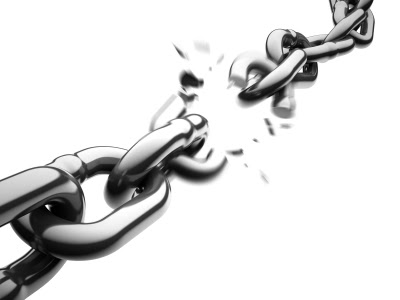Why doesn't McDonald's charge $40 for a cheeseburger? After all it'd more profitable. Why does Wal-Mart or the Dollar General or 5andDimes or Goodwill even exist if name-brand stores can charge as high as "the wealthy" can pay? Most people seem to inherently understand the cause-and-effect of prices and competition in the retail market. But is that only because we see it everyday in our current lives?
Consider an alternative history where during the Great Depression, advocates for the poor pressured the govt to pass a bill that created "Gov-co" retail stores. Gov-co stores are a nation-wide chain that provide cheap, generic food and goods for the poor at massively discounted prices (subsidized by taxes). Adjusted for inflation, they had prices like $1 for a new pair of tennis shoes or a button up shirt or $10 for new car tires or $20 for a new dishwasher because the rest of the cost of the goods is subsidized with taxes. At such discounted prices, no private company can compete and so not only have Gov-co stores became a national chain in virtually every town, but now the only alternative to those Gov-co stores are high-end, brand name stores selling high-end goods that cost top dollar and are only affordable to the middle class and above. At this point, very few really remember what it was like before Gov-co existed. People only recognize that only "the rich" can afford the brand name goods. But that only reinforces the need for a Gov-co to provide affordable goods for the poor.
Unfortunately, people have recognized that while the prices of Gov-co goods have remained stable (only raising with inflation), the quality of the goods has not. In addition, the quality and price of goods in the south is slightly different than the price and quality in the northeast as well as differences between urban, suburban and rural communities. Meanwhile, brand name goods continue to improve and increase in quality, though prices still cannot compete with Gov-co.
People are decrying the further and further separation between what the poor can afford vs what the rich can afford. In fact, they point out that the rich are able to afford goods that make them more productive and able to make more money compared to the poor. Something must be done. Many advocate to increase tax spending on Gov-co products to help increase the quality while keeping the prices low. Others advocate setting mandated regulations - maybe even establishing a federal agency to oversee and inspect manufacturers to ensure sufficient and consistent quality products. Tweaks to the system are constantly introduced, customer feedback mechanisms, product quality control tests are standardized, but nothing appears to really be improving the situation. (Not to strain the analogy, but imagine if IN ADDITION to everything else, if you did choose to shop at Gov-co instead of the brand name stores, you could only shop at your local Gov-co nearest your home.)
In such a situation, if someone advocated simply and completely eliminating Gov-co and allowing the free market to work in the retail space, I think few would dispute that there would be large numbers of people pointing at those high-end stores that cater to the more well-off and decry "What about the poor?" and lament that the poor would go hungry and naked because they couldn't afford to buy from those high-end stores. They'd claim that those private stores would just continue to charge high prices because people have to have food and clothing and stuff, right? The suggestion to completely eliminate Gov-co would be treated as nonsense - of being harsh, unsympathetic, and cruel. Accusations would abound that advocates are only concerned for the rich or are "in the pocket of big business".
But in reality, we know that without a Gov-co, we actually have a vibrant retail market with an enormous segment dedicated specifically to low-income consumers. Stores like mentioned above: Wal-Mart, Dollar General, 5andDimes, Goodwill, etc. all directly aim to serve low-income consumers. Critics of eliminating Gov-co overlook that the poor are a market in and of themselves and that many companies would move into that market to serve them - providing cheaper goods for lower prices and that competition in that market would help improve quality while keeping prices low.
Now this understanding that free market competition DOES encourage businesses to keep prices low and to increase the quality to attract customers is pretty common. We seem to inherently understand this about retail goods because we see it in action everyday. But many seem to have a problem with the idea that the same effects and incentives apply to education as to retail goods - I would argue, because we're only familiar with the current setup where only "the rich" can afford private schools.
Those who suggest simply eliminating public education are dismissed as naive. They are told, often even by other advocates of limited-govt, that without public education, the poor wouldn't be able to afford to send their children to school, only continuing the generational poverty and further widening the gap between the rich and the poor. Perhaps another look at the nature of competition in a free market, only in a different market, may help them see that we cannot simply assume that the current structure of "only the rich can afford private education" would continue if we eliminated public education. In fact, based on looking at other markets like retail, there is significant evidence to conclude that education providers would likely actively focus and pursue low-income customers.
Eliminating public education and allowing free market competition into the market for education couldn't be a whole lot worse than modern public education in many places, and it has the potential to be much, much better.
Friday, August 02, 2013
Eliminate "Gov-co"
Labels:
conservatism
,
economics
,
education
,
free markets
,
government
,
libertarianism
,
policies
,
privatization
Subscribe to:
Comments
(
Atom
)
